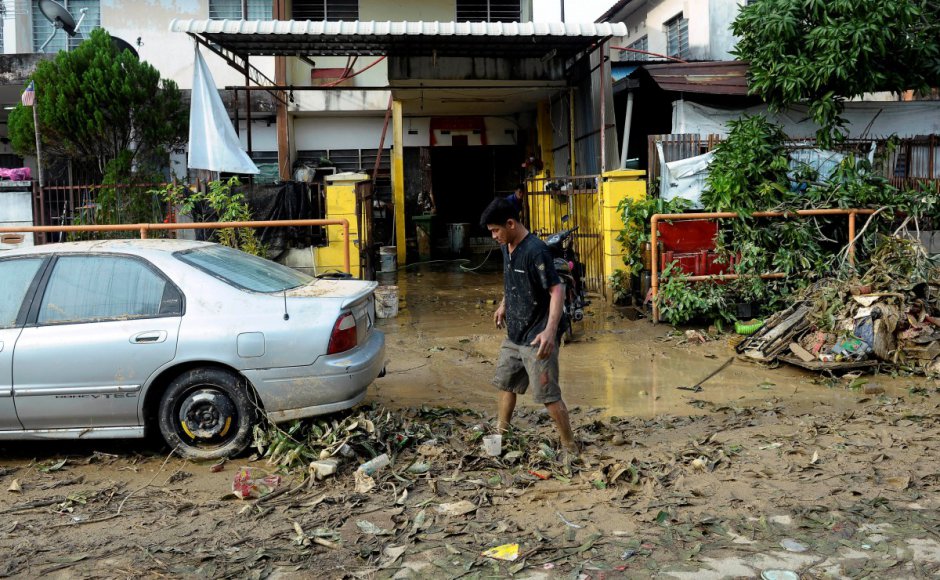SHARES

When calamities such as floods, earthquakes strike all of a sudden, it often leaves the disaster survivors high and dry in an overwhelmingly tough situation. For a lot of people, there may not be any externally visible signs of physical injury; however there can be an emotional impact. It is very common for people who have gone through a disaster to show strong emotional reactions. Understanding reactions to distressing events can help cope effectively with thoughts, feelings, and behaviors, and also help you along the path to recovery.
What are the common responses to a calamity?
Usually after a disaster, people go into a state of shock; they feel disoriented or even unable to assimilate any information. Once these preliminary reactions decrease, people might start to go through a range of behaviours and thoughts.
- Change in thought and behaviour patterns –Disaster survivors might experience vivid and repeated memories of the incident/event. These memories might occur for no actual reason and can tend to lead to physical reactions such as sweating or palpitation (rapid heartbeat). It may be difficult to concentrate or even make decisions. Sleep and eating patterns can also be disturbed — some people could end up overeating or over sleeping while some others experience the opposite – insomnia and loss of appetite.
- Intense or unpredictable feelings – Feeling anxious, nervous, or overwhelmed. Some people might also seem moody or more irritable than they usually are.
- Strained interpersonal relationships – Frequent disagreements with co-workers or family members can occur.
- Sensitivity to environmental factors – Loud noises, burning smells or other environmental sensations even sound of water gushing may bring back memories of the calamity thus creating increased anxiety. These sensations usually might be accompanied by the fear that the same calamity might strike once more.
- Stress-related physical symptoms –Nausea, headache and at times, chest pain may occur and could require medical attention.
How can you cope?
Fortunately, research shows that most people are able to overcome the effects with time and they are able to bounce back to normal routine. It is common for people to be stressed out immediately after the disaster, but often within a few months most people are able to resume functioning as they did earlier. It causes us harm mentally and physically to be stagnated in the events of the past and is beneficial rather to move on by being resilient.
Below are a few pointers as to how you can go about this:
- Give yourself time to get back
- Ask for support from people who care about you and who will listen to you and also understand your situation.
- Communicate your experience – keeping a diary or engaging in a creative activity can help distract attention from the past experience
- Interacting with a local support group led by properly trained and experienced professionals will aid in coming out of the crisis
- Engage in healthy activities like healthy diet, physical activity also help in coping with excessive stress
- Slowly get back to old routine –Pursuing a hobby, reading a book, taking up new activities, a new exercise routine can also help
- Avoid taking major life decisions at least for sometime
Should you seek professional help? If so, how soon?
Most often symptoms will subside with time, but if they are persistent and it makes you feel that everyday activities are very difficult to handle, it is advised to consult with a licensed mental health professional such as a psychologist. Psychologists are professionally trained to help people cope with emotional response to calamities or disaster. Whenever there is a disaster of any magnitude, psychologists often are mobilized to help.
What support do psychologists offer?
- Listen to people’s stories
- Listen to their concerns on issues such as their family, homes etc.
- Help people manage their temporary living conditions and to get used to temporary shelters that might be away from their homes
- Offer information about available resources for immediate relief requirements such as clothing, medical care, etc.
- Counsel individuals to be resilient, help them contact family and friends; they teach them to accept that change is going to be an ongoing experience; they counsel that it is essential to maintain a positive outlook
- Listen to parents’ concerns about how their children will recover from the disaster and manage potential challenges ahead (e.g. new living arrangements, new schools, etc.).
- Educate and assure people that it is normal for survivors of a disaster to exhibit an array of common reactions such as nightmares, memories, nightmares, confusion.
- Assure people that it is not impossible to recover from a disaster and build better lives.
- While working with children: they identify problem areas, support positive coping strategies;
- Help children to connect with family and friends
- Help children to find ways to help others
Resilience and a positive attitude is what will take us forward, it is essential to keep that in mind, whether we are struck by a disaster or not, in our darkest hour staying calm and exhibit positivity will help every individual come out of the trying situation!
Stay Strong Malaysia!
Source:
by Hridya
A biochemist by education who could never put what she studied to good use, finally found GetDoc as a medium to do what she loved - bring information to people using a forum that is dedicated to all things medical. View all articles by Hridya.





